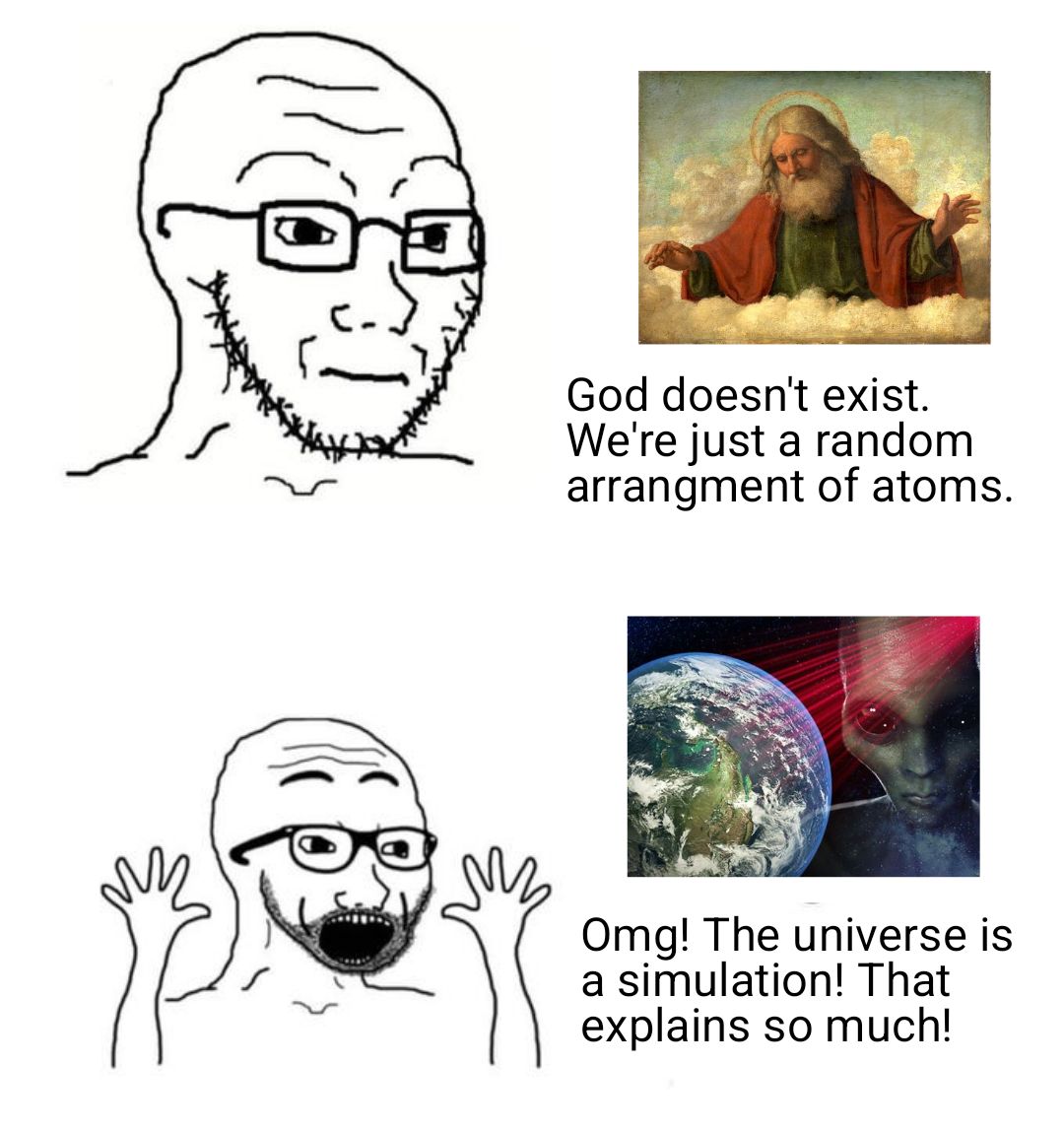this post was submitted on 22 Dec 2023
398 points (76.7% liked)
Memes
45690 readers
1664 users here now
Rules:
- Be civil and nice.
- Try not to excessively repost, as a rule of thumb, wait at least 2 months to do it if you have to.
founded 5 years ago
MODERATORS
you are viewing a single comment's thread
view the rest of the comments
view the rest of the comments

No. That’s why it’s not called “simulation hypothesis”. It’s called “simulation theory”. The hypothesis is the original, untested idea. The theory is the idea after it has been tested that fits as a valid explanation. It has been tested.
To be fair, though, the actual idea is called “simulation hypothesis” in the real world for that reason but it’s not a hypothesis because it can’t come to a falsifiable conclusion. There’s literally no way of knowing whether we are or aren’t in a simulation.
It’s the same idea as a god that controls everything but doesn’t intervene at all, is invisible, and unknowable. It could be true but it’s a moot point since we could never know.
I’m not being dishonest. You are, however, being dismissive and rude.
If you find dismissal of your inability to coherently explain the concept you brought up rude, that's your prerogative.
You've said enough to demonstrate you don't understand basic empiricism, have not done sufficient reading on the topic that - again - you brought up, and have contradicted yourself in your own comment.
You are dishonest, and we're pretty much done here.
I’m not dishonest and I haven’t said anything that suggests I’m not arguing in good faith. I’ve sufficiently explained the concept and the idea that our observations can only extend to what we’re capable of. I also don’t see where I’ve contradicted myself but I’m sure you’ll point that out instead of being nebulous and ignoring the points actually demonstrated…